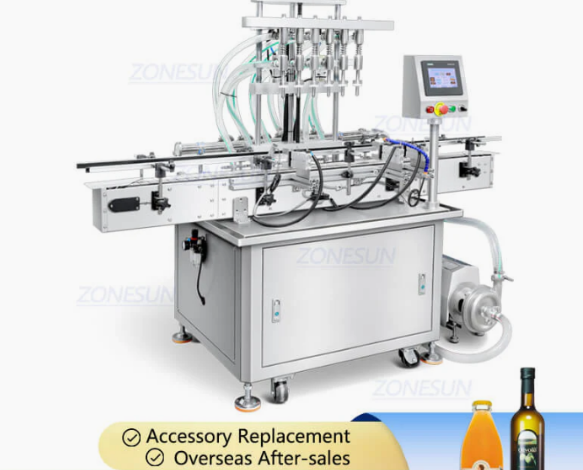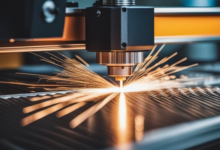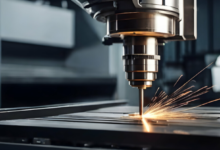Bottle Filling Machines Suitable for Beverage Production Lines

In beverage production, efficiency and consistency are key to ensuring high-quality beverages are delivered to the market. Bottle filling machines are essential equipment in the production process.
They mechanize the filling of liquid products, providing a fast, clean, and accurate process. With the growing demand for beverages, suitable bottle filling machines are needed to keep production lines running and meet large orders.
Types of Bottle Filling Machines Used in Beverage Production
Beverage manufacturers choose different types of bottle filling machines to meet specific application needs in their filling lines.
l Depending on the liquid being filled, manufacturers employ different filling methods, such as gravity filling, pressure filling, or vacuum filling.
l Gravity bottle filling machines are ideal for filling fine liquids such as water, juice, or tea.
l Gravity fillers use gravity to fill the bottle, ensuring that the liquid does not foam or overflow during the filling process.
l Pressure fillers are more suitable for carbonated beverages, such as mineral water or soft drinks, because they use controlled pressure to fill the liquid, minimizing the loss of foam or bubbles.
l Vacuum fillers are suitable for fragile beverages that require precise control of the filling process to prevent contamination.
Every filling machine has its advantages and disadvantages, but the overall goal is to achieve high-speed, accurate filling with minimal waste.
See also: Tech-Driven Security: How AI-Enhanced CCTV and Mobile Reporting Elevate Safety in Bangalore
Key Features of Modern Bottle Filling Machines
Today’s bottle filling machines are designed to be efficient, flexible, and easy to use. These machines possess several key features that make them ideal for beverage production lines:
l High-Speed Mode: These new bottle filling machines are designed for high-speed operation, capable of filling hundreds or even thousands of bottles per hour. This is designed to meet the production demands of large-scale manufacturers. The ability to customize speed settings based on production needs makes the machines versatile.
l Automatic Control Systems: Most modern bottle filling machines are equipped with automatic control systems that regulate liquid flow for continuous, accurate filling.
l User-Friendly Interface: New machines feature user-friendly interfaces that allow operators to easily adjust settings, monitor production, and troubleshoot issues. These operations can often be performed remotely, making line operation a breeze, eliminating the need for human oversight.
l Hygienic Design: Hygiene is paramount in the beverage industry, and modern bottle filling machines are designed to ensure the highest levels of hygiene. Stainless steel construction and easily removable components ensure a contamination-free, hygienic, and reliable filling process.
l Bottle Size Flexibility: Most filling machines are designed to handle a variety of bottle sizes and shapes, providing manufacturers with flexibility when switching production lines. From small bottles of juice to large bottles of soda, these machines are flexible enough to meet a variety of production needs.
Benefits of Filling Machines in Beverage Manufacturing
Filling machines on beverage production lines offer some very unique advantages, allowing manufacturers to stay ahead in a highly competitive market.
l Increased Production Efficiency: Filling machines are able to process large volumes of product in a minimal amount of time. High-speed performance allows manufacturers to stay ahead of consumer demand, especially in the premium beverage market, such as bottled water, juice, and soda. Automation can save labor time and speed up turnaround times.
l Consistency and Quality Control: Consistency is paramount in beverage manufacturing. Bottling equipment achieves consistency by filling each bottle to the same height, eliminating product variations and improving overall product quality. Automated equipment also eliminates human error, further ensuring product consistency.
l Minimizing Waste and Product Loss: Manual filling processes can lead to overfilling or overflowing bottles, resulting in product loss. By using automated filling equipment, manufacturers can reduce waste by precisely metering and filling liquids. This leads to cost-effectiveness and high profit margins in the long run.
l Reduced Labor Costs: Automating filling operations helps manufacturers reduce manual labor. Manufacturers can have machines perform complex tasks while other workers handle packaging or quality inspection. In addition to saving labor, this technology can also reduce workplace accidents and errors.
l Fast Product Changeovers: Beverage production lines regularly switch between different product types, such as from water to juice or from one bottle size to another. Fast changeovers are standard on most filling machines on the market today, reducing downtime and enabling manufacturers to operate flexibly.
l Environmental Sustainability: Automated filling machines are designed with energy conservation and waste reduction in mind. Some machines feature energy-efficient motors to minimize power consumption, while others use less packaging material. With most manufacturers increasingly prioritizing sustainability, these environmentally friendly features are an added advantage.
Choosing the Ideal Bottle Filling Machine for Your Beverage Production Line
Selecting a bottle filling machine requires consideration of several factors, such as the product being produced, the desired production rate, and the size of the bottle. Every company has unique needs that must be analyzed to select the type of filling system that best suits its production line.
For example, a carbonated beverage bottling plant requires a pressure filler, while a juice bottling plant might use a gravity filler. The machine’s capacity and versatility should also be considered, especially for those that need to fill bottles of varying sizes or quickly switch between lines.
Furthermore, the machine’s ease of maintenance, availability of spare parts, and affordability must be considered. By striking a good balance between all these factors, food and beverage manufacturers can select a filling machine that maximizes output while maintaining both quality and cost.
Conclusion
Bottle filling machines are the backbone of today’s beverage production. They offer speed, precision, and versatility to meet the growing demand for bottling orders. With a variety of filling methods and groundbreaking features, these machines can help beverage producers streamline processes, reduce waste, and improve overall production efficiency. Choosing the right bottle filling machine allows beverage producers to remain competitive in the competitive beverage market while ensuring consistent product quality.






